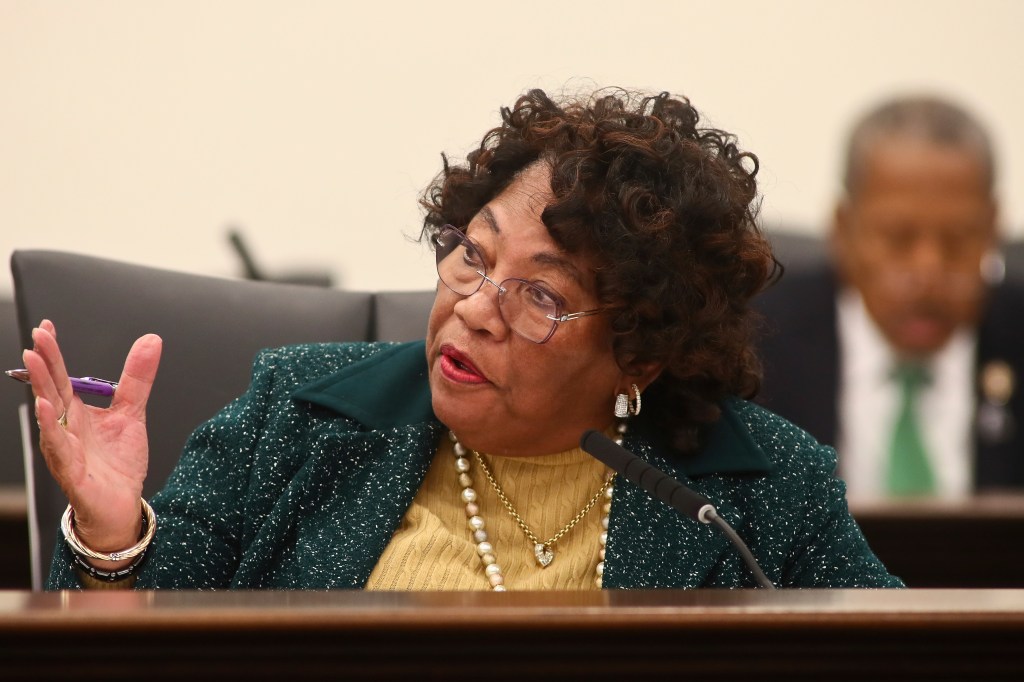Florida
Florida wants to ban university discussions on ‘systemic racism’


I feel compelled to start this column with a warning: It contains some tough truths and ugly realities about Florida history.
So if you’re someone with fragile sensibilities who doesn’t like to hear facts that make you uncomfortable, feel free to skip ahead to the Sudoku. Or run for the Florida Legislature, where you’ll feel right at home.
You’ve probably read the stories about how GOP lawmakers are trying to remake higher education to their ideological liking. The governor dropped a bomb on New College and vowed to exorcise “woke” thoughts from college curricula statewide. Lawmakers are also eager to gut diversity-and-inclusion efforts, but are rethinking that one after realizing some schools’ inclusion efforts also help veterans and students with disabilities. (They were fine targeting efforts to help Black and LGBTQ people, but got a little angsty about undercutting people who’d served this country.)
So they’ve now turned their attention to trying to ban history lessons they don’t like.
Specifically, a recently proposed addition to the higher-ed bill (SB 266) calls for a ban on teaching theories that suggest “systemic racism, sexism, oppression, and privilege are inherent in the institutions of the United States and were created to maintain social, political, and economic inequities.”
In other words: They want to ensure students can’t hear the full truth.
See, if you don’t believe any American institutions were both shaped by inequalities and designed to perpetuate them, you’re ignorant of the facts.
Take, for example, Florida’s only recently abandoned policy of banning former felons from ever voting again. That policy was instituted in the wake of the U.S. Civil War by Florida politicians who were, according to the Brennan Center for Justice, trying to stop the state from becoming too “n*ggerized.”
If that offends you, good. You’re human. If you don’t want anyone learning that history, not good. You’re a distorter.
Yet Sen. Geraldine Thompson, a Democrat who sits on one of the committees vetting the proposal and who founded Orlando’s Wells’Built Museum of African American History and Culture, said distortion seems to be the goal. Specifically inhibiting students from hearing how the roots of systemic inequalities that exist today were planted years ago.
Much like the fact that the University of Florida and its earlier incarnations wouldn’t admit Black students for its first 100 years, Thompson said Florida is full of harsh historical realities that had racial impacts for generations.
“That wasn’t happenstance. It was systemic,” Thompson said. “And to teach this is not teaching theory. It’s teaching fact. There are some residual effects and vestiges of these policies. And if you don’t intentionally try to address those, you’re perpetuating them.”
Yet Thompson is concerned those are precisely the kind of discussions lawmakers are trying to stifle.
Here’s another example:
I could tell you that Black people and White people aren’t treated equally in Florida courtrooms — that there is evidence that “systemic racism” is “inherent” in our judicial system, using the precise words lawmakers want to ban college instructors from uttering.
Maybe that’s something you don’t want to hear. Well, sorry, but there’s gobs of evidence to back that up. Just a few years ago, the Sarasota Herald-Tribune conducted an investigation that found Black citizens consistently get harsher punishments than White ones in Florida’s court system — often getting longer sentences for the exact same crime, sometimes before the exact same judge.
There were examples galore. Like two 17-year-olds in Lee County who were both charged with robbing gas stations with guns. Both had precisely three prior records as juveniles. Both made off with a few hundred bucks. The Black teen got four years in prison. The White one avoided prison altogether.
It went on and on with the statewide analysis finding Black defendants were sentenced to 68 percent more time for serious first-degree crimes, 45 percent more for burglary and 30 percent more for battery.
That is systemic racism, regardless of whether you want to acknowledge it.
Thompson actually floated a legislative proposal to more thoroughly study the discrepancies found in the Herald-Tribune’s “Bias on the Bench” series to get more complete numbers and see what, if anything, needed fixing. Her idea was rejected.
Then, the Florida Supreme Court went a step further, curtailing “fairness and diversity” training for Florida judges.
This seems to be the new Florida way for handling systemic inequality. First, you nix efforts to fix it. Then you try to ban even discussing it.
The actual language in the higher-ed censorship proposal is a hot mess, full of nebulous catch phrases and vague bans, forbidding curriculum that, for example, “teaches identity politics,” as if that’s a statutorily defined thing.
The goal seems to be to generally chill speech, so that no one’s quite clear what they’re allowed to teach.
When the bill’s sponsor, Sen. Erin Grall, R-Vero Beach, was asked how the state would crack down on allegedly offensive history lessons, she said: “The bill doesn’t specify the process,” noting the governor’s political appointees would later figure that out. That’s quite a plan.
Thompson noted that the chilling effects are already happening with Florida schools canceling classes that they fear might offend legislators.
Teaching students actual history and sharing with them concrete contemporary data isn’t unpatriotic. Trying to stop or censor that is.












You must be logged in to post a comment Login